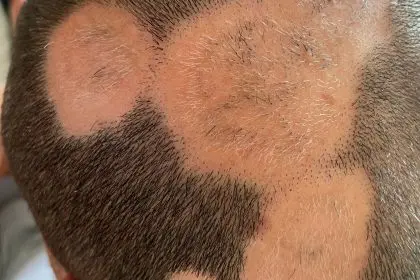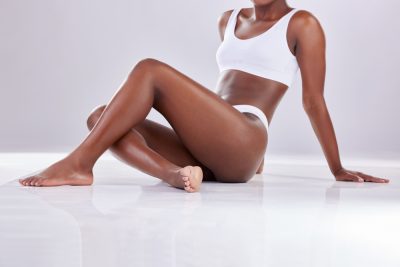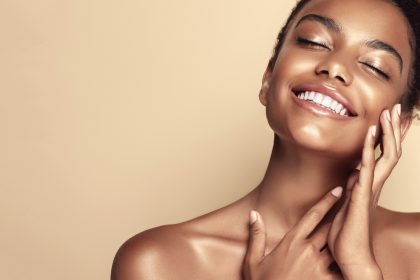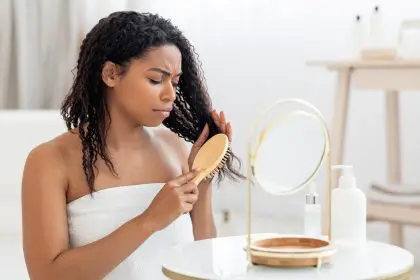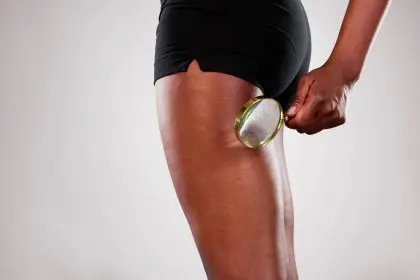Taking a month-long break from makeup creates a fascinating journey of physical and emotional transformation that many people never anticipate. The changes that occur during this period extend far beyond simple skin improvements, affecting everything from daily routines to self-perception.
The decision to go makeup-free for an extended period often begins as a curiosity experiment or health initiative. Whether motivated by skin concerns, time constraints, or a desire for authenticity, this choice sets in motion a series of changes that become increasingly noticeable as the weeks progress.
Week one: the adjustment period
The first seven days without makeup typically bring the most dramatic lifestyle adjustments. Morning routines that once required 15 to 45 minutes suddenly compress into just a few minutes of basic skincare. This newfound time often feels strange initially, as muscle memory continues to reach for foundation brushes and mascara wands.
Skin begins its natural rebalancing process almost immediately. Without daily applications of primers, foundations, and setting powders, pores start to function more freely. The skin’s natural oil production begins to regulate itself without the constant presence of products designed to mattify or control shine.
Many people experience what feels like skin purging during this initial week. Breakouts may appear as the skin adjusts to the absence of makeup ingredients it has grown accustomed to. This temporary reaction often discourages people from continuing their makeup-free journey, though it typically subsides within days.
The psychological adjustment proves equally significant. Looking in mirrors throughout the day without the familiar enhancement of makeup can feel jarring. The face may appear tired, pale, or unfamiliar compared to the made-up version that has become the norm.
Skin texture and clarity improvements
By the second week, noticeable changes in skin texture begin to emerge. The constant cycle of applying and removing makeup products no longer subjects the skin to daily friction and chemical exposure. This reduction in manipulation allows the skin’s natural healing processes to accelerate.
Pore appearance often improves dramatically during this period. Without foundations and concealers settling into pores throughout the day, these openings can return to their natural size and function. The skin’s surface becomes smoother as it no longer needs to accommodate layers of product.
Natural skin tone begins to even out as circulation improves. The daily massage action of applying and removing makeup products, while sometimes beneficial, can also cause irritation and redness in sensitive individuals. Without this regular disturbance, skin tone becomes more uniform.
Hydration levels typically increase as the skin’s natural moisture barrier strengthens. Many makeup products, particularly long-wearing formulas, can be drying over time. Without these products, the skin can maintain its natural moisture balance more effectively.
The freedom of simplified routines
The time savings from eliminating makeup routines become increasingly appreciated as the month progresses. Morning preparations become streamlined, allowing for extra sleep, leisurely breakfasts, or additional time for other self-care activities.
Evening routines also simplify significantly. The absence of makeup removal steps means less time spent at the bathroom sink and fewer products needed for nighttime skincare. This simplification often leads to more consistent skincare habits, as the routine becomes less overwhelming.
Travel becomes remarkably easier without makeup considerations. Packing requires fewer products, airport security becomes simpler, and the worry about makeup melting or smudging in different climates disappears entirely.
Exercise routines often improve during makeup-free periods. Without concern about sweating off carefully applied products, workouts become more intensive and frequent. The skin benefits from increased circulation and the natural detoxification that comes with regular sweating.
Confidence shifts and self-perception changes
The relationship with mirrors undergoes significant transformation throughout the month. Initial discomfort with the bare face gradually gives way to acceptance and often appreciation of natural features. Freckles, skin texture, and natural coloring that were previously hidden become familiar and accepted parts of appearance.
Social interactions may feel different initially, particularly for those accustomed to wearing full makeup daily. However, most people discover that others notice the change far less than anticipated. This realization often provides valuable perspective on how much appearance anxiety is self-generated.
Professional settings may present initial concerns about looking polished or put-together without makeup. Many individuals discover that good skincare, grooming, and confident posture create a professional appearance that doesn’t require cosmetic enhancement.
The relationship with natural aging changes during makeup-free periods. Lines, spots, and other signs of aging become visible and gradually accepted as normal parts of human appearance rather than flaws to conceal.
Sleep and skin regeneration benefits
Sleep quality often improves when makeup removal no longer delays bedtime routines. The simplified evening routine allows for earlier rest, which directly benefits skin regeneration processes that occur during sleep.
Pillowcases stay cleaner without makeup transfer, reducing the potential for bacteria buildup that can contribute to breakouts. This cleaner sleep environment supports better skin health throughout the night.
The skin’s natural repair processes work more effectively without makeup residue potentially clogging pores overnight. Even thorough makeup removal sometimes leaves traces of product that can interfere with nighttime skin renewal.
Morning skin appearance improves as natural overnight oil production isn’t disrupted by makeup remnants. The skin often looks more radiant and rested after makeup-free sleep periods.
Financial and environmental impacts
The month without makeup often reveals the true cost of daily cosmetic routines. Products that typically require regular replacement due to daily use last significantly longer, providing insight into long-term makeup spending patterns.
Environmental impact awareness increases as fewer makeup products are consumed and disposed of. The reduction in packaging waste, plastic containers, and chemical runoff from daily makeup removal becomes apparent.
Shopping habits may shift as makeup needs decrease. Time previously spent researching new products, watching tutorial videos, or browsing cosmetic counters can be redirected toward other interests and activities.
The realization that many makeup products expire before being fully used becomes clear when consumption patterns change dramatically for an extended period.
Long-term perspective changes
By the month’s end, many people develop a completely different relationship with makeup. Rather than viewing it as a daily necessity, it often becomes seen as an optional enhancement for special occasions or personal enjoyment.
The natural face becomes the new normal, making makeup application feel heavier and more noticeable when it is eventually worn again. This shift in baseline appearance often leads to lighter, more minimal makeup choices in the future.
Skin confidence typically increases significantly after experiencing a full month of natural appearance acceptance. The knowledge that the bare face is acceptable in various social and professional situations provides lasting confidence benefits.
The appreciation for natural beauty often extends beyond personal appearance to include greater acceptance of others’ natural looks and reduced judgment about appearance-related choices.
Returning to makeup with new perspective
When makeup is eventually reintroduced, the application process often feels foreign initially. Skin that has grown accustomed to breathing freely may react differently to products than before the break.
Product preferences frequently change after the makeup-free period. Heavy foundations may feel suffocating, while lighter formulations become more appealing. The desire for products that enhance rather than completely transform natural features often increases.
The psychological relationship with makeup transforms from dependency to choice. Makeup becomes a creative tool or special occasion enhancement rather than a daily requirement for feeling presentable.
Many people establish new makeup routines that incorporate lessons learned during their product-free month, often resulting in healthier skin and more confident self-image long-term.


